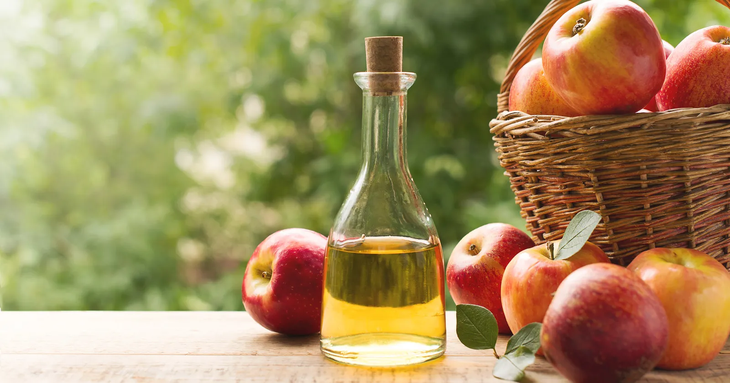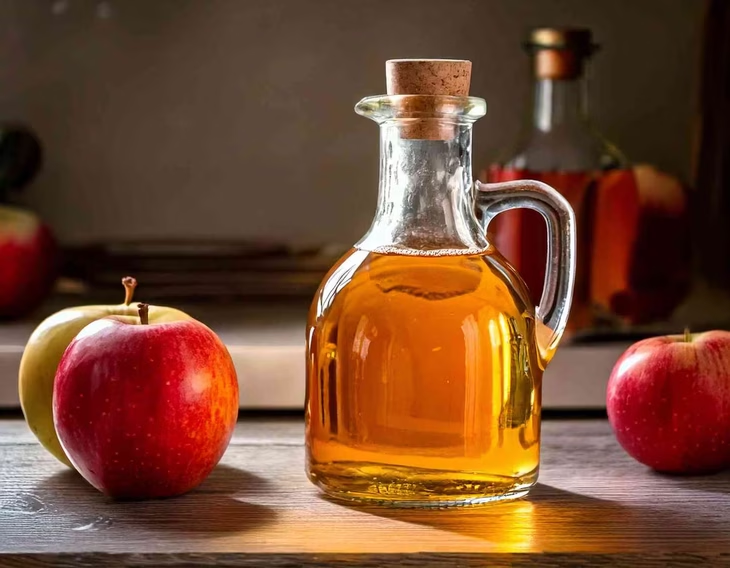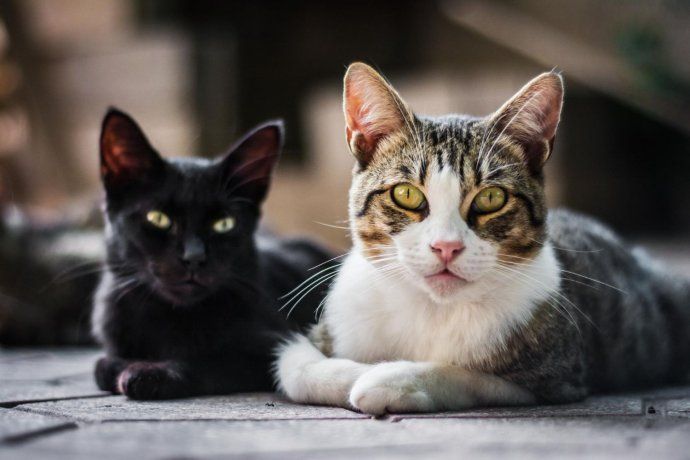By its acronym in English Biologically Appropriate Raw Food, the BARF feed is based on providing raw foodswith a proportion of 60 and 80% bones, meat, organ meats, eggs, milk and between 20 and 40% fruits, legumes and vegetables, to our dogs and cats.
It is based on feeding pets with raw food following their original nutrition like carnivorous animals. Trying to imitate, as much as possible, what they would eat if they lived in nature. This trend promises benefits for your health, suggesting improvements in digestion thanks to an altered gut microbiome.
horizontal-shot-two-cats-sitting-on-blurred-background.jpg
Freepik.
But as with all feeding methods, it generates a lot of debate. Its defenders highlight the good health of the teeth, the shine of the hair, the improvement of chronic diseases such as osteoarthritis and growth problems, the strengthening of tendons and ligaments, and protected immune systems as it does not contain any type of added ingredients or preservatives.
For their part, those who oppose them rely on the fact that this diet is not yet supported by a solid scientific basis. In addition, some raw meats are not subject to specific inspections or microbiological tests, leaving the door open to a high risk of bacterial contamination and different pathogens.
Despite this discussion, in recent years, interest in this natural diet has grown. One of the ingredients that caused the most popularity is apple cider vinegar. Which can be a valuable addition to the diet of our dogs and cats, due to its digestive, antimicrobial and parasite control benefits.
Although it is important to know its benefits and it is essential to use it with caution, under the advice of a veterinarian so that it is safe and effective. Discover why it can be good and the precautions you should take before including it in your cats’ diet, according to experts.
207493.webp

The benefits of apple cider vinegar for cats, according to experts
Apple cider vinegar is made by fermenting the sugars in apples, transforming them first into alcohol and then into acetic acid. He is known for his antibacterial and antioxidant propertiesand is used in a variety of health applications for both humans and pets. These are the main benefits of including it in our cats’ diet:
Improves digestive health
It can act as a natural probiotichelping to balance the intestinal flora of cats. A healthy intestine is essential for good digestion and absorption of nutrients. Additionally, acetic acid can help reduce indigestion symptoms and prevent bacterial infections in the digestive system.
Parasite control
This product is known for its ability to repel fleas and ticks. It acts as a natural antiparasitic for our pets, since when applied diluted in water on the fur, it can function as a protective barrier.
In addition, its regular use can help maintain the pH of the skin, creating a less favorable environment for the proliferation and mass reproduction of fleas.
Antimicrobial properties
It can be useful for treat infections minor on the skin and ears of cats. Applied superficially, it can help clean wounds.
Support in the health of the urinary system
Help acidify urinewhich can be beneficial for prevent infections in the urinary system of our cats. An adequate pH can inhibit bacterial growth and reduce the risk of crystals and stones forming in the body.
Apple cider vinegar in the BARF Diet for cats
This diet focuses on offering raw, biologically appropriate foods, encouraging a natural diet in pets. Apple cider vinegar can play an important role for three reasons:
1. Boosts digestion
Helps improve the digestion of raw foods. Its properties acidics can help break down food, facilitating the absorption of essential nutrients.
2. Natural preservative
It can act as a natural preservative for raw foods, since its acidity can inhibit the growth of bacteria in the food, thus ensuring that the food remains fresh and safe for consumption.
3. Nutritional supplement
This product is rich in minerals such as potassium, calcium and magnesiumessential for the general health of our cats. These minerals can complement the diet, ensuring balanced nutrition.
VYKYNLF7HNHALMJCR4HGT3KYLU.avif

Precautions you should take when giving apple cider vinegar to a cat
Be careful with the quantities
You must take into account an appropriate dosage of this product. You can add apple cider vinegar orally to both their water and food, or externally on their fur.
It is essential don’t overdo it in the amount of apple cider vinegar given to pets. Incorrect dosage can cause irritation in the stomach or esophagus. Therefore, the general recommendation of experts is to start with small portionsand watch how your cat reacts.
Correct dilution
Before use, this product must be diluted appropriately. For applications on the external surface of the animal’s body, a proportion of 50/50 of vinegar and water is safe. For internal consumption, just mix one teaspoonful of vinegar in a cup of water.
Consult the veterinarian
Before introducing apple cider vinegar into your pet’s diet, it is essential to consult with a veterinarian. Each pet is unique and may have specific dietary needs or health concerns that need to be considered.
Although this product has many potential benefits, it is not suitable for all pets. Cats with kidney problems, chronic stomach illnesses, or sensitivity to acid may not react well to apple cider vinegar.
Source: Ambito
I am an author and journalist who has worked in the entertainment industry for over a decade. I currently work as a news editor at a major news website, and my focus is on covering the latest trends in entertainment. I also write occasional pieces for other outlets, and have authored two books about the entertainment industry.




